
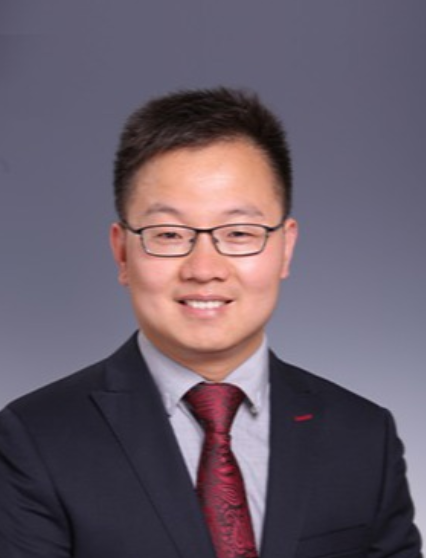
Prof. Keyou You, Tsinghua University, China
游科友,教授,清华大学
Brief Introduction: Prof. Keyou You is a permanent professor and doctoral supervisor in the Department of Automation at Tsinghua University. His main research interests include networked control systems, distributed optimization and learning, and direct data-driven control analysis and design. He pursued his PhD at Nanyang Technological University, Singapore in 2007, and after graduation in 2011, he joined the faculty of the Department of Automation at Tsinghua University, where he has served as Lecturer, Assistant Professor, Long-Term Associate Professor, and Long-Term Professor. Prof. You has published many high-level papers in international journals such as IEEE Transactions on Automatic Control, Automatica, etc. He has presided over and participated in many national research projects, including the National Key Research and Development Program and the National Natural Science Foundation of China's Outstanding Young Scientist Fund Program, etc. He is also the editor of several international journals. He also serves as an editorial board member of several international journals, and has been honored with Temasek Young Educator Award of the Asian Control Society and the Excellent Young Science Fund of the National Natural Science Foundation of China, making significant contributions to the research in the field of control theory and applications.
游科友教授是清华大学自动化系的教授和博士生导师。他的主要研究兴趣包括网络化控制系统、分布式优化与学习、直接数据驱动的控制分析与设计。他于 2007 年在新加坡南洋理工大学攻读博士学位,2011 年毕业后加入清华大学自动化系,历任讲师、助理教授、长期副教授、长期教授。尤教授在《IEEE Transactions on Automatic Control》、《Automatica》等国际期刊上发表了多篇高水平论文。他主持和参与了多项国家级科研项目,包括国家重点研发计划、国家自然科学基金委杰出青年科学基金项目等。他还是多个国际期刊的编辑。他还担任多个知名国际期刊的编委,曾荣获亚洲控制学会淡马锡青年教育家奖和国家自然科学基金委员会优秀青年科学基金,在控制理论与应用研究领域做出了重要贡献。

Prof. Renquan Lu, Guangdong University of Technology, China
鲁仁全,教授,广东工业大学
Brief Introduction: Renquan Lu, doctoral director, Ministry of Education high-level talents, national high-level talent special support program for scientific and technological innovation leader, National Outstanding Youth Fund project, the Ministry of Science and Technology key areas of innovation team leader, the Ministry of Science and Technology Innovation Talent Cultivation Base, Guangdong Province, Guangdong Province Natural Science Foundation research team leader, Guangdong Province, Director of the Key Laboratory, enjoying the State Council's special allowances, Pearl River Scholars Distinguished Professor, He is a member of the Control Theory Committee of the Chinese Society of Automation (TCCT), and a member of the Outstanding Youth Fund of the National Natural Science Foundation of China. He has received one Outstanding Youth Fund from the National Natural Science Foundation of China, two 863 projects, one NSFC-Guangdong Big Data Science Center project (a key support project), one innovation team project in key areas of the Ministry of Science and Technology, one National Key R&D Program, one talent cultivation and innovation team construction project funded by the Central Government to support the reform and development of local colleges and universities, and one project funded by the Guangdong Province's Science and Technology Innovation Strategy Special Fund. 1 project. He won the first prize of Natural Science of Ministry of Education (two), the first prize of Science and Technology Award of Zhejiang Province, the second prize of Science and Technology Progress Award of Ministry of Education, and the second prize of Science and Technology Progress Award of China Textile Industry Association. His main research work includes control theory and application of networked systems, cooperative control and robust control of quantized feedback systems. So far, he has published more than 140 SCI papers, including 9 papers in Automatica, more than 60 papers in IEEE repertoire, more than 3400 SCI citations, 27 highly cited papers, 3 monographs, nearly 20 authorized invention patents, and more than 60 applications for invention patents.
鲁仁全,博导,教育部高层次人才、国家高层次人才特殊支持计划科技创新领军人才,国家杰出青年基金项目获得者、科技部重点领域创新团队带头人、科技部创新人才培养基地负责人、广东省自然科学基金研究团队带头人、广东省重点实验室主任、享受国务院特殊津贴、珠江学者特聘教授、国家百千万人才工程有突出贡献中青年专家、教育部新世纪优秀人才计划获得者,担任中国自动化学会控制理论专业委员会(TCCT)委员。获得国家自然科学基金杰出青年基金1项、主持863项目2项、主持NSFC-广东大数据科学中心项目1项(重点支持项目)、科技部重点领域创新团队项目1项、国家重点研发计划1项、中央财政支持地方高校改革发展资金人才培养和创新团队建设项目1项,广东省科技创新战略专项资金项目1项。荣获教育部自然科学一等奖(两项)、浙江省科学技术奖一等奖、教育部科学技术进步奖二等奖、中国纺织工业协会科学技术进步奖二等奖等奖励。主要研究工作包括网络化系统控制理论和应用、协同控制及量化反馈系统的鲁棒控制。至今为止,发表SCI论文140余篇,包括Automatica论文9篇,IEEE汇刊论文60余篇,SCI他引3400余次,高被引论文27篇,出版专著3部,授权发明专利近20项,申请发明专利60余项。
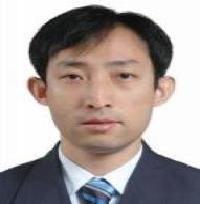
Prof. Huijun Gao, Harbin Institute of Technology, China
高会军,教授,哈尔滨工业大学
Brief Introduction: Huijun Gao is now a professor and doctoral supervisor of Aerospace College of Harbin Institute of Technology; Director of Cross-Science Research Center, Director of Institute of Intelligent Control and Systems; National High-level Talent, National Young Talent, IEEE Fellow, Honorary Professor of the University of Hong Kong; Standing Committee Member of the All-China Youth Federation, and Vice-Chairman of the Youth Federation of Heilongjiang Province. He has carried out extensive and in-depth research work in the theory and application of automatic control, and achieved some research results in the fields of networked control, robot intelligent system, intelligent equipment, etc., which were published in IEEE Trans. Automatic Control, Automatica, Science in China and other journals. He has published more than 100 papers in international high level journals such as IEEE Transactions series, with more than 20,000 SCI citations, 76 ESI highly cited papers, and has been selected as one of the global highly cited scholars. He has published 4 international monographs and has been authorized more than 80 national invention patents and 1 US invention patent. He has been awarded the honors of National 100 Outstanding Doctoral Dissertations, Second Prize of National Natural Science, Chen Jiageng Youth Science Award, China Youth Science and Technology Award, State Council Government Special Allowance, National Advanced Worker, and China Youth May Fourth Medal. He is the vice president of IEEE Industrial Electronics Society, and a member of the board of directors of IFAC, International Federation of Automatic Control. He has served as co-editor-in-chief of IEEE Trans. Industrial Electronics, senior editorial board member of IEEE/ASME Trans. Mechatronics, editorial board member of Automatica and several IEEE Transactions series of repertoire journals, and has served as conference chair and program committee chair of more than 10 international conferences. He has served as the chairman of the conference and program committee in more than 10 international conferences, and has made more than 10 conference presentations in IECON, IEEE SMC and other international conferences. He serves as the chief scientist of the National Key R&D Program and the director of China Postdoctoral Science Foundation. He has trained many students who have been selected for the Yangtze River Scholars and National Excellent Youth Talent Programs.
高会军,现为哈尔滨工业大学航天学院教授、博士生导师;交叉科学研究中心主任、智能控制与系统研究所所长;国家级高层次人才、国家级青年人才、IEEE Fellow、香港大学荣誉教授;全国青联常委、黑龙江省青联副主席。在自动控制理论和应用方面开展了广泛而深入的研究工作,在网络化控制、机器人智能系统、智能装备等领域取得了一些研究成果,发表在IEEE Trans. Automatic Control、Automatica、《中国科学》等期刊上。在IEEE Transactions系列汇刊等国际高水平期刊上发表论文100余篇,SCI他引2万余次,ESI高被引论文76篇,入选全球高被引学者。出版国际专著4本,获授权国家发明专利80余项,美国发明专利1项。曾获全国百篇优秀博士学位论文、国家自然科学二等奖、陈嘉庚青年科学奖、中国青年科技奖、国务院政府特殊津贴、全国先进工作者、中国青年五四奖章等荣誉。任IEEE工业电子学会副主席、国际自动控制联合会IFAC理事会成员。在国际期刊IEEE Trans. Industrial Electronics担任共同主编、IEEE/ASME Trans. Mechatronics担任高级编委,并任Automatica及多个IEEE Transactions系列汇刊编委,在10余个国际会议上担任大会主席、程序委员会主席,在IECON、IEEE SMC等国际会议做大会报告10余次。担任国家重点研发计划首席科学家、中国博士后科学基金会理事等职务。培养的多名学生入选长江学者、国家优青等高层次人才计划。
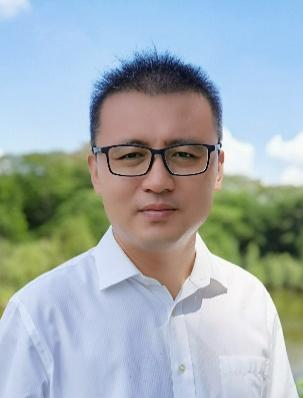
Prof. Hongyi Li, Southwest University, China
李鸿一,教授,西南大学
Brief Introduction: Hongyi Li is a professor and doctoral supervisor at Southwest University, a national talent, a recipient of the National Natural Science Foundation of China's Key Project and Excellent Youth Science Foundation, and a New Century Outstanding Talent of the Ministry of Education of China.He graduated from the University of Portsmouth, UK, with a Ph.D. degree in Intelligent Control in 2012. He was a visiting scholar at the University of Hong Kong, Hong Kong Polytechnic University, and the University of Wollongong, Australia. He is mainly engaged in the research of intelligent control of complex dynamic systems, cooperative control and its applications, and has applied for more than 60 national invention patents, of which more than 40 patents have been authorized. He has published two monographs, and has published more than 130 papers in Automatica, IEEE TAC, and IEEE refereed journals, of which two papers published in IEEE TCYB and IEEE TSMCS journals have been honored with the “IEEE SMC” award in 2016 and 2019, respectively. The two papers published in IEEE TCYB and IEEE TSMCS journals won the Andrew P. Sage Best Repertoire Paper Award in 2016 and 2019 IEEE SMC Societies, respectively. He serves on the boards of IEEE Transactions on Neural Networks and Learning Systems, IEEE Transactions on Fuzzy Systems, IEEE Transactions Automation Science and Engineering, IEEE Transactions on Systems, Man, and Cybernetics: Systems, IEEE Transactions on Cognitive and Developmental Systems, Journal of Systems Science and Complexity, Science in China: Information Science (Chinese and English editions), and Journal of Automation (Chinese and English editions), etc.; organizing special issues in the international journals IEEE Transactions on Cybernetics and IET Control Theory and Applications; and organizing special issues in the international journals IEEE Transactions on Cybernetics and IET Control Theory and Applications. He has organized special issues in the international journals IEEE Transactions on Cybernetics and IET Control Theory and Applications. He has presided over the key projects of the National Natural Science Foundation of China and the Outstanding Youth Science Foundation. He has been awarded 4 first and second prizes in natural sciences at provincial and ministerial levels, 4 best paper prizes in international conferences, 5 excellent supervisors of provincial master's theses, and the best editorial board members of IEEE TNNLS, IEEE/CAA JAS, JSSC, Science in China: Information Science and Journal of Automation, and excellent reviewers of China's Science and Technology Journal Excellence Program, the 4th Scopus Young Science Star, the Liaoning Young Science and Technology Award, etc. He has also been awarded the “Excellent Youth Science Prize” of IEEE Transactions on Cybernetics and IET Control Theory and Applications. Star of the 4th Scopus Young Science, Liaoning Province Youth Science and Technology Award and other honors. He is currently a senior member of IEEE, a member of the International Federation of Automatic Control (IFAC) Committee on Computational Intelligence and Control, and a vice-chairman of the Youth Working Committee of the Chinese Society of Automation.
李鸿一,西南大学教授、博士生导师,国家级人才,国家自然科学基金重点项目和优秀青年科学基金项目获得者,教育部新世纪优秀人才。2012毕业于英国University of Portsmouth智能控制专业,获工学博士学位。曾在香港大学、香港理工大学、澳大利亚卧龙岗大学做访问学者。主要从事复杂动态系统智能控制、协同控制及其应用方面研究,申请国家发明专利60余项,其中授权专利40余项;出版专著 2 部;发表Automatica、IEEE TAC和IEEE 汇刊论文共130余篇,其中发表在IEEE TCYB与IEEE TSMCS期刊上的2篇论文分别获2016与2019 IEEE SMC学会 Andrew P. Sage 最佳汇刊论文奖。担任 IEEE Transactions on Neural Networks and Learning Systems、IEEE Transactions on Fuzzy Systems、IEEE Transactions Automation Science and Engineering、IEEE Transactions on Systems, Man, and Cybernetics: Systems、IEEE Transactions on Cognitive and Developmental Systems、Journal of Systems Science and Complexity、《中国科学:信息科学》(中英版)以及《自动化学报》(中英版)等10余个期刊编委;在国际期刊IEEE Transactions on Cybernetics与 IET Control Theory and Applications上组织专刊。主持国家自然科学基金重点项目、优秀青年科学基金等项目。曾获省部级自然科学一等奖与二等奖4项、国际会议最佳论文奖4项、省级优秀硕士学位论文指导教师5次以及IEEE TNNLS、IEEE/CAA JAS、JSSC、《中国科学:信息科学》与《自动化学报》最佳编委和中国科技期刊卓越计划优秀审稿人、第四届 Scopus 青年科学之星、辽宁省青年科技奖等荣誉。现为IEEE 高级会员、国际自动控制联合会(IFAC)计算智能与控制专业委员会委员以及中国自动化学会青年工作委员会副主任委员。
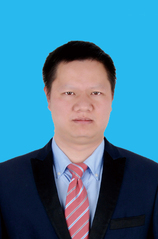
Prof. Xiangzeng Kong, Fujian Agriculture and Forestry University, China
孔祥增,教授,福建农林大学
Brief Introduction: Xiangzeng Kong is a professor of Fujian Agriculture and Forestry University, a national leading talent; a visiting professor of Fuzhou University (2022); selected as a high-level A talent in Fujian Province (2021), the “Hundred Talents Program” for the introduction of high-level innovation and entrepreneurship talents in Fujian Province (2020), and an outstanding talent of Fujian Province in Internet Economy (2017); awarded the second prize of Second Prize of Fujian Provincial Science and Technology Progress Award, ranked 1/6 (2023); Second Prize of Fujian Provincial Teaching Achievement Award (2022); Fuzhou Youth Science and Technology Award (2021); First Prize of the First “Rooted in Banyan City” Award of Fuzhou City (2017); Gold Prize of Cross-Strait Employee Innovation Achievement Exhibition (2012); and presided over the National Key Research and Development Program (formerly known as the National Key Laboratory for the Development of Science and Technology in China) in 2023. National Key Research and Development Program (former National 973 and 863 Programs) “High Precision Bio-sensory Feedback Manipulation Technology and System (2023YFF1203900)”; in 2021, he presided over the “New Generation of Highly Compatible Bio-implantable Electrodes Design and Development” of the National Key Research and Development Program (former National 973 and 863 Programs); and he was awarded the Gold Prize of the Cross-Strait Staff Innovation Exhibition (2012). Design and Application of Highly Compatible Bio-implantable Electrodes (2021YFF1200030)”; in 2020, presided over the National Key Research and Development Program (former National 973 and 863 Program) ”Research on Internet Rehabilitation Technology Based on Artificial Intelligence Technology (2020YFF0401865) In 2017, he chaired the National Natural Science Foundation of China's youth program “Mining of seismic long-wave radiation anomalies and validation of multi-parameter correlation”, and in the same year, he chaired the excellent program of Fujian Province's Returned Overseas Chinese Start-up Program “Research and Development of Artificial Intelligence Chip Based on Brainwave Technology”. In the same year, he chaired the excellent project “R&D of Artificial Intelligence Chip Based on Brainwave Technology” in Fujian Province, and “R&D of MindFly, Idea-Controlled UAV and Idea-Intelligent Robot and Industrialization of Educational Application” in Xiamen Shuanghundred Plan Talent Project. Dr. 2011-2016 graduated from the University of Ulster, UK (VCRS Scholarship), School of Computing and Engineering, majoring in Computer Science (Time Series Data Mining Direction). He is a professor of Fujian Agriculture and Forestry University (FAFU), a leader of the university's advantageous disciplines, specialty disciplines, and emerging interdisciplinary disciplines, and the head of the innovative research team of FAFU. He is also an expert in the evaluation of Changjiang Scholars of the Ministry of Education, an expert in the evaluation of titles, an executive director of Fujian Artificial Intelligence Society, a member of the Artificial Intelligence Branch of the Chinese Society for Agricultural Machinery, a director of Fujian Biomathematical Society, a reviewer of international journals such as IEEE, and a reviewer of the National Natural Science Foundation of China. He has long been committed to the core technology of artificial intelligence and its application in agriculture, and his research areas include agricultural information perception, intelligent ocean, brain-machine interaction, and data mining. He has presided over and participated in 5 projects of National Key Research and Development Program, 3 projects of National Natural Science Foundation of China, published more than 40 SCI and EI papers, and authorized 15 invention patents and 70 utility model patents.
孔祥增,现为福建农林大学教授,国家级领军人才;福州大学客座教授(2022);入选福建省高层次A类人才(2021)、福建省引进高层次创新创业人才“****”(2020)、福建省互联网经济优秀人才(2017);获福建省科技进步奖二等奖,排名1/6(2023);福建省教学成果奖二等奖(2022)、福州市青年科技奖(2021)、福州市首届“植根榕城”一等奖(2017)、海峡两岸职工创新成果展金奖(2012);2023年主持国家重点研发计划(原国家973、863项目)“高精度生物感知觉反馈操纵技术与系统(2023YFF1203900)”子课题;2021年主持国家重点研发计划(原国家973、863项目)“新一代高相容性生物植入电极设计与应用(2021YFF1200030)”子课题 ;2020年主持国家重点研发计划(原国家973、863项目)“基于人工智能技术的互联网康复技术研究(2020YFF0401865)”;2017年主持国家自然科学基金青年项目“地震长波辐射异常挖掘及多参数关联性验证”,同年主持福建省留学归国人员启动项目优秀项目“基于脑电波技术的人工智能芯片研发”,主持厦门双百计划人才项目“意念控制无人机MindFly和意念智能机器人研发及教育应用产业化”;2018年主持中国留学归国人员项目重点支持:“人机脑波交互设备及大数据云平台”。2011-2016博士毕业于英国Ulster大学(VCRS 奖学金),计算机与工程学院,计算机科学专业 (时间序列数据挖掘方向)。任福建农林大学教授,学校优势学科、特色学科、新兴交叉学科带头人,福建农林大学创新研究团队负责人。兼任教育部长江学者评审专家、职称评审专家、福建省人工智能学会常务理事、中国农业机械学会人工智能分会委员、福建省生物数学学会理事、IEEE等国际期刊审稿人、国家自然科学基金审稿人。长期致力于人工智能核心技术及其农业应用,研究领域包括农业信息感知、智慧海洋、脑机交互、数据挖掘。主持和参与国家重点研发计划项目5项,国家自然科学基金3项,发表SCI、EI论文40余篇,授权发明专利15项,实用新型专利70项。
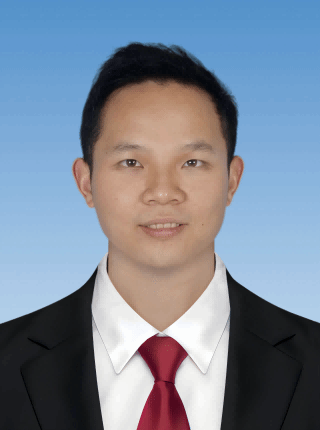
Prof. Yu Tang, Lingnan Normal University, China
唐宇,教授,岭南师范学院
Brief Introduction: Yu Tang, post-doctoral, professor, doctoral tutor, post-doctoral cooperation tutor, member of the 23 rd batch of doctoral service group of the Central Organization Department and the Central Committee of the League, Fellow of the International Academy of Agricultural and Biological Systems Engineering ( iAABE ), high-level talents in Qinghai Province-Kunlun elite leading talents, high-level talents in Guangdong Province-Gangdong Special Branch Plan for Scientific and Technological Innovation Young Top Talents, Pearl River Scholars, Guangdong Youth May Fourth Medal, Guangdong Outstanding Inventors, Excellent Teachers in Southern Guangdong, Guangzhou 's Most Beautiful Science and Technology Workers, Guangdong Provincial Colleges and Universities, Guangzhou Pearl River Science and Technology Stars, etc. He is appointed as the Party committee member and deputy general manager of Qinghai Huixin Asset Management Co., Ltd. ; he was the Vice President of Automation College of Zhongkai University of Agricultural Engineering, the Director of Scientific Research Department and the Director of Humanities and Social Sciences Department of Guangdong Technical Normal University. He is currently the Standing Committee of the Party Committee and Vice-President of Lingnan Normal University. It is mainly engaged in the research of artificial intelligence, intelligent perception and autonomous control. It has presided over more than 20 national and provincial-level scientific research projects such as the National Natural Science Foundation of China and the National Key R & D Field Plan.Its relevant research results have been tracked and reported by many media such as CCTV News Channel, CCTV 2 's Spring Farming First-Line Program, People 's Network, Learning Power, Southern +, Guangzhou Daily, and Yangcheng Evening News. It has won one first prize and one second prize of the Ministry of Education for scientific and technological progress ; zhejiang Province Science and Technology Progress Award 1 ; guangdong Patent Gold Award 1 ; guangdong Outstanding Inventor Award 1 ; guangdong-Hong Kong-Macao Greater Bay Area High-value Patent Cultivation Layout Competition Gold Award 1 ; guangdong Province Science and Technology Progress Second Prize 2 ; china machinery industry science and technology progress second prize 1 ; china Industry-University-Research Cooperation Innovation Achievement Excellence Award 1 ; the 8th Youth Science and Technology Award of China Agricultural Engineering Society ; 1 ; guangzhou Science and Technology Innovation Nanshan Award 1 ; china Industry-University-Research Institute Cooperation Innovation Award ( individual ), published more than 100 papers in domestic and foreign journals and conferences, authorized 11 American invention patents and 63 Chinese invention patents.
唐宇,博士后,教授,博士生导师,博士后合作导师,中组部、团中央第23批博士服务团成员,国际农业与生物系统工程科学院(iAABE) Fellow,青海省高层次人才-昆仑英才领军人才,广东省高层次人才-广东特支计划科技创新青年拔尖人才,珠江学者,广东青年五四奖章,广东杰出发明人,南粤优秀教师,广州最美科技工作者,广东省高等学校优青,广州市珠江科技新星等。挂任青海汇信资产管理有限责任公司党委委员,副总经理;曾任仲恺农业工程学院自动化学院副院长,广东技术师范大学科研处处长和人文社科处处长;现任岭南师范学院党委常委,副校长。主要从事人工智能、智能感知与自主控制等方面研究。先后主持国家自然科学基金面上项目、国家重点研发领域计划项目等国家和省部级科研项目二十余项,其有关研究成果被中央电视台新闻频道、中央电视2台的春耕走一线节目、人民网、学习强国、南方+、广州日报、羊城晚报等多家媒体的跟踪报道。并获教育部科学科技进步一等奖1项,二等奖1项;浙江省科技进步一等奖1项;广东专利金奖1项;广东杰出发明人奖1项;粤港澳大湾区高价值专利培育布局大赛金奖1项;广东省科技进步二等奖2项;中国机械工业科学技术进步二等奖1项;中国产学研合作创新成果优秀奖1项;中国农业工程学会第八届青年科技奖1项;广州科技创新南山奖1项;中国产学研合作创新奖(个人)1项,在国内外期刊及会议发表论文100余篇,授权美国发明专利11件,中国发明专利63件。